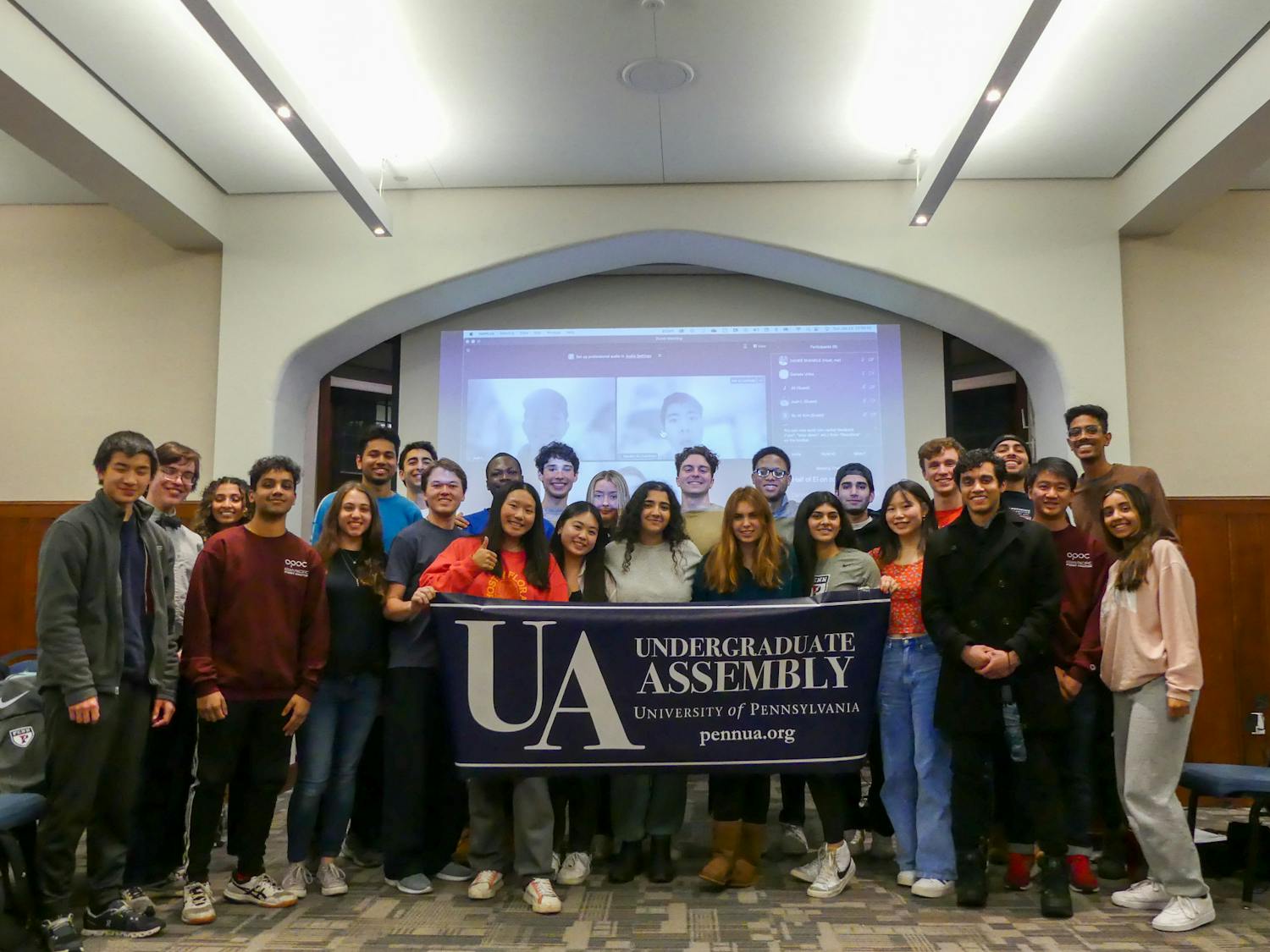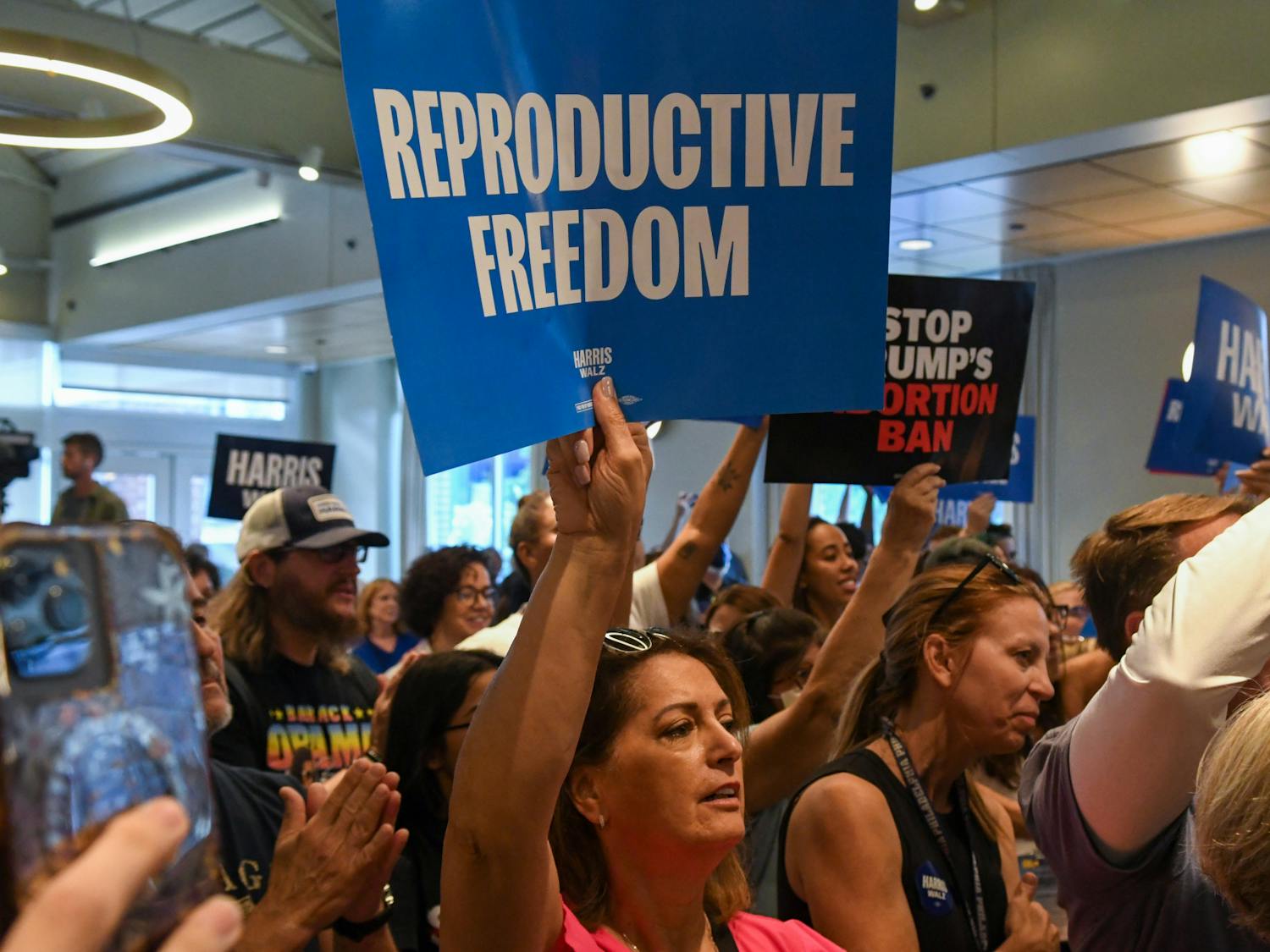Penn prides itself on having limited religious underpinnings and for good reason: secular education has been one of the largest contributors to America's successful history.
Nevertheless, this position has come at the cost of neglecting the importance of religion in students' lives. Penn is in the minority in its refusal to fund religious groups and yet numerous facets of University life, such as the strong Jewish community and the prominence of religious awareness weeks, demonstrate the importance of these groups.
Penn responded by creating the Office of the Chaplain, which for the past 12 years has been run by Reverend William Gipson. Chaplain Gipson, as many students know him, has been one of the most exuberant personalities on campus, going out of his way to counsel students, sponsor religious activities and serve as the representative of religion in administrative settings.
Students turn to the chaplain at their most desperate times and confide in him as if he were a family member. For students of faith, the chaplain may be their peer, mentor, and parent-away-from-home all rolled into one.
Furthermore, religious groups utilize the chaplain's office not only for funding but also for advice. SAC does not provide financial assistance to religious groups and as a result, these groups rely on the Office of the Chaplain for funds. "The greatest resources at Penn for many religious students are the religious organizations," explains former Penn MSA president Khalid Usmani.
That the Office of the Chaplain is the sole support for many religious organizations further underscores its importance. While many students never interact with the chaplain, for those who do, William Gipson has been a tremendous pillar.
However, over winter break, Chaplain Gipson left his position to pursue an opportunity as Associate Vice Provost focusing on Equity and Access Initiatives.
With this move, Penn will select a new chaplain and this process is being spearheaded by the Provost's Office.
Unfortunately, at this point in time, the Provost's Office has not contacted the student body for input in selecting the new Chaplain. Representatives of Hillel, HSC, MSA and Newman have all told me that they have not received any information about the selection process - never mind being asked to participate in any way. Additionally, e-mails to administrators explaining this very sentiment have gone unanswered.
While it is true that the role of the chaplain is oriented toward administrative concerns in addition to its focus on student life, this does not justify a unilateral decision made by administrators.
In fact, the case could be made that the chaplain has a more direct influence on student life than does, say, Wharton's dean - which was selected with the help of student input. The chaplain interacts with many students on a personal level, has relationships that last many years and "is a close friend of many religious people at Penn," says College senior Jon Weiner, president of PRISM - Penn's interfaith organization.
Accordingly, "allowing students to have input in who their representation within their University will be is not a liberty but a necessity," explains College sophomore Sam Adelsberg, an active member of Hillel.
I personally have been fortunate enough to develop a working relationship with Chaplain Gipson over the past three years and while I will miss his dedication and support to religious life at Penn, I also look forward to a successor that will build on the great steps Chaplain Gipson has taken toward providing an atmosphere at Penn that is welcoming to students of faith. After all, Penn's greatest strength is the diversity of its student body. Creating an environment where students can discuss and learn from each other's backgrounds can only enrich campus life further and strengthen Penn's educational capacity.
Various campus resources are devoted to this cause.
The Greenfield Intercultural Center is given the mandate to harness and support cultural and ethnic diversity; Tangible Change encourages collaboration between disparate student groups to foster greater integration on campus; the Chaplain's Office addresses this issue in the religious spectrum and as such, the Chaplain is a tremendously important figure on campus with regard to university life.
Every spring the administration and the trustees hold meetings with student leaders to understand the concerns of the students. If this initiative is truly not tongue-in-cheek and the University is actually concerned about what students want, then they will reach out to us and seek our input in selecting the next chaplain.
Saara Hafeez, communications chair of the MSA, summarizes succinctly: "The chaplain is heavily involved in student life, so the students should help select the chaplain."
Samir Malik is a College and Wharton senior and former president of Penn's Muslim Students' Association.








